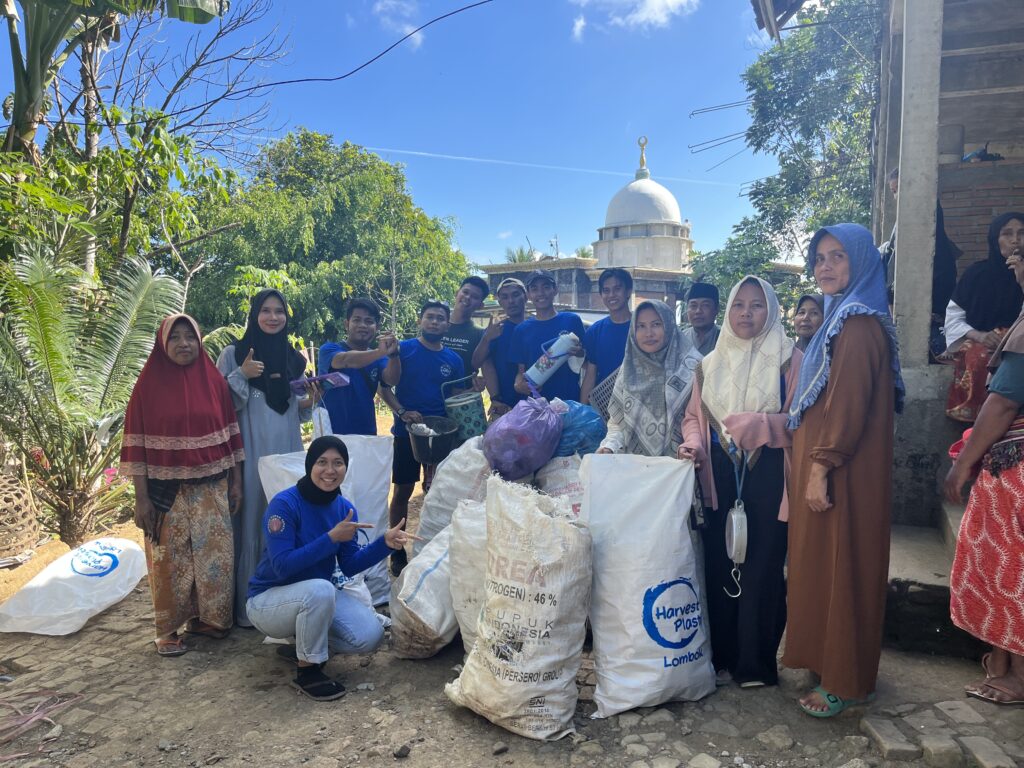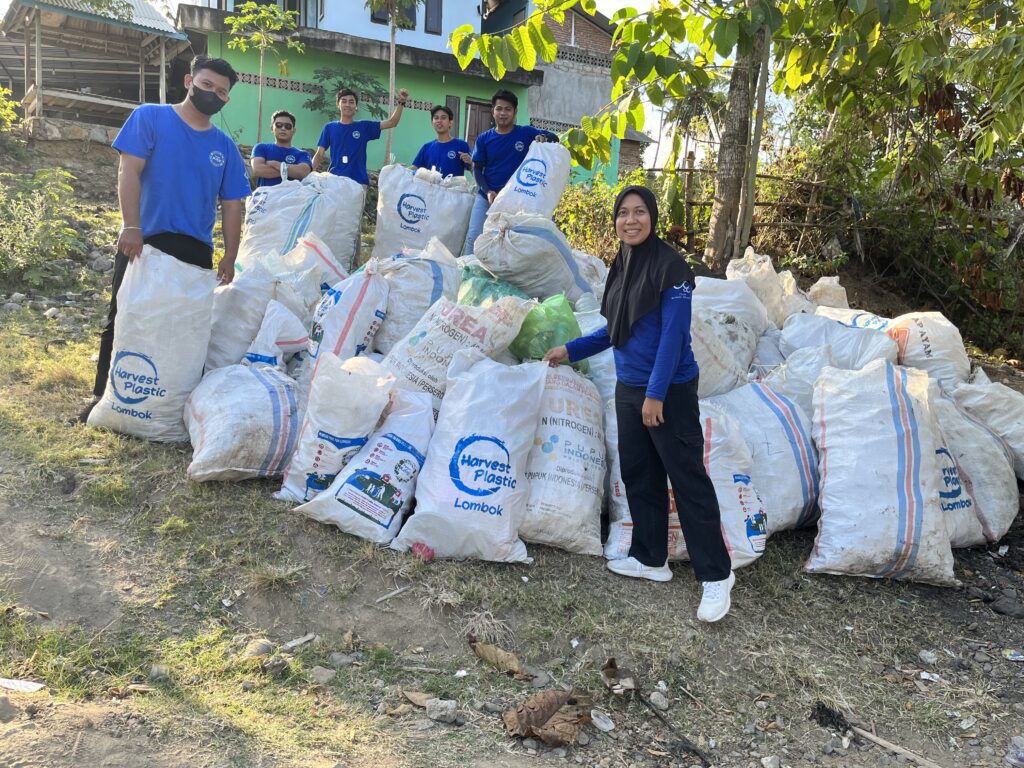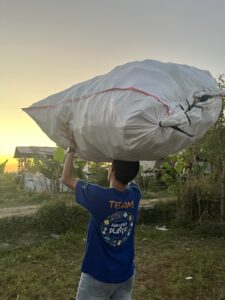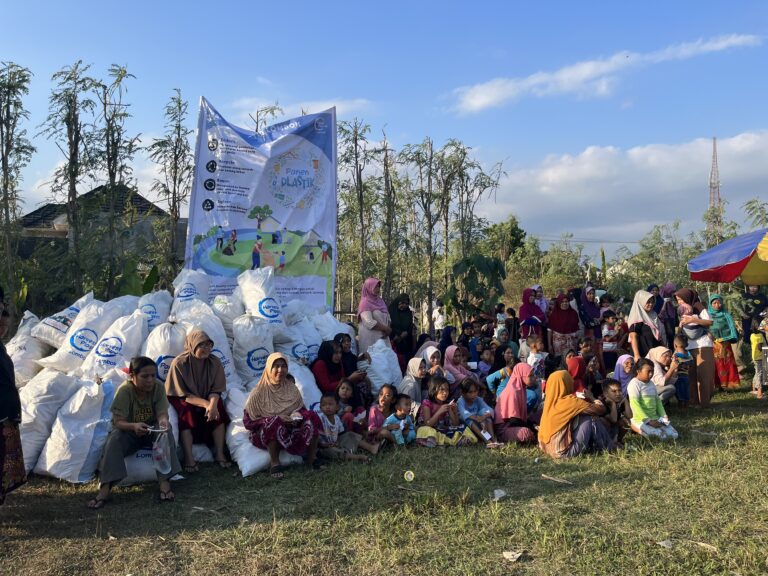Harvest plastic is a one-year community and tech-supported project to reimagine how plastic waste is handled across communities with no access to formal waste management services. To date, we have helped more than 300 households divert more than four tons of plastic from the watershed.
The Challenge
Keeping plastic out of the Ocean
Our Solution
According to the United Nations Environment Programme, “with a population of 250 million, Indonesia is the fourth most populous country and second-largest plastic polluter in the world after China. The country produces 3.2 million tonnes of unmanaged plastic waste a year, of which about 1.29 million tonnes ends up in the sea.”
Waste management services across Indonesia are limited and plastic ends up discarded on the ground or being burned. Both of these outcomes are bad for human well-being and the environment. When plastic is burned, toxic gasses are released and can lead to significant negative health outcomes. Plastic that is discarded on the ground enters watersheds through streams, creeks, and rivers and eventually ends up in the ocean, harming marine life. Current estimates are that less than 10% of plastic in Lombok is properly managed.

Our solution set is to align technology, education, community engagement, and circular economy supply chains to provide an end-to-end solution for plastic.
Our technology solution is the Ocean Recovery Alliance’s Global Alert app which allows users to report plastic “hotspots” which need community action to address.
Our education solution includes working with key stakeholders to use the Global Alert app to track
plastic hotspots, share resources for how plastic can be properly disposed of, and organizing community members to join the “Harvest Plastic” competition. Community engagement through the Harvest Plastic initiative is a model that the Ocean Recovery Alliance pioneered in Cambodia.
Community members utilize repurposed rice bags to collect plastic from their households, which our team can aggregate and bring to “plastic banks”. We also work with them to address plastic hot spots by installing booms and other technology which can help streamline the process of collecting plastic and removing it from the environment


